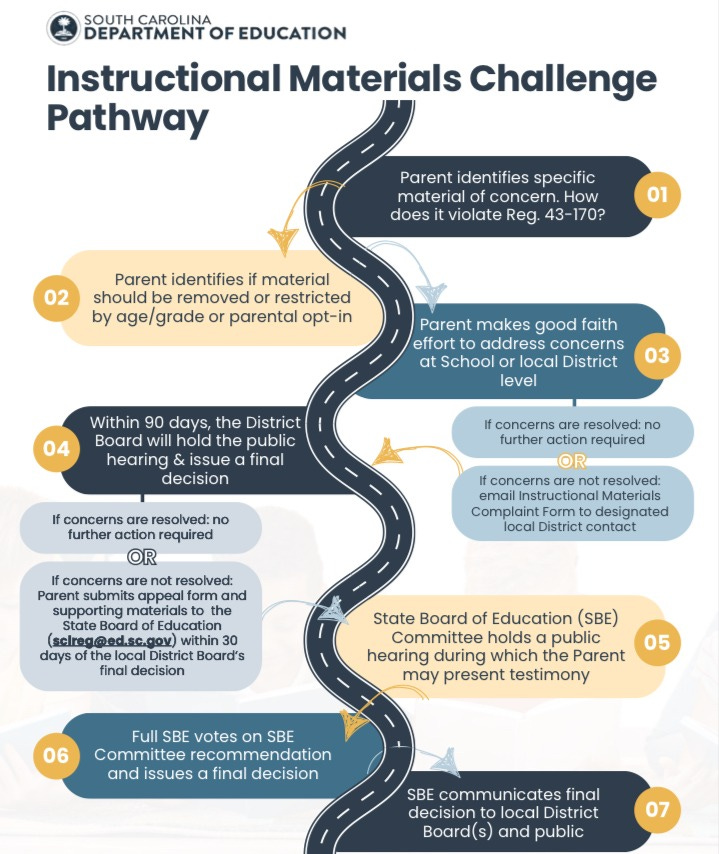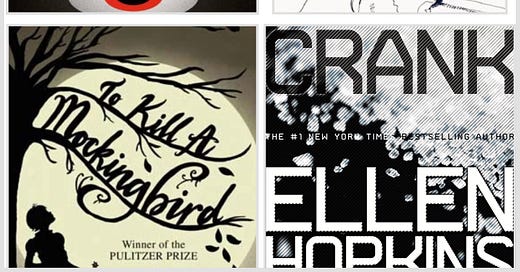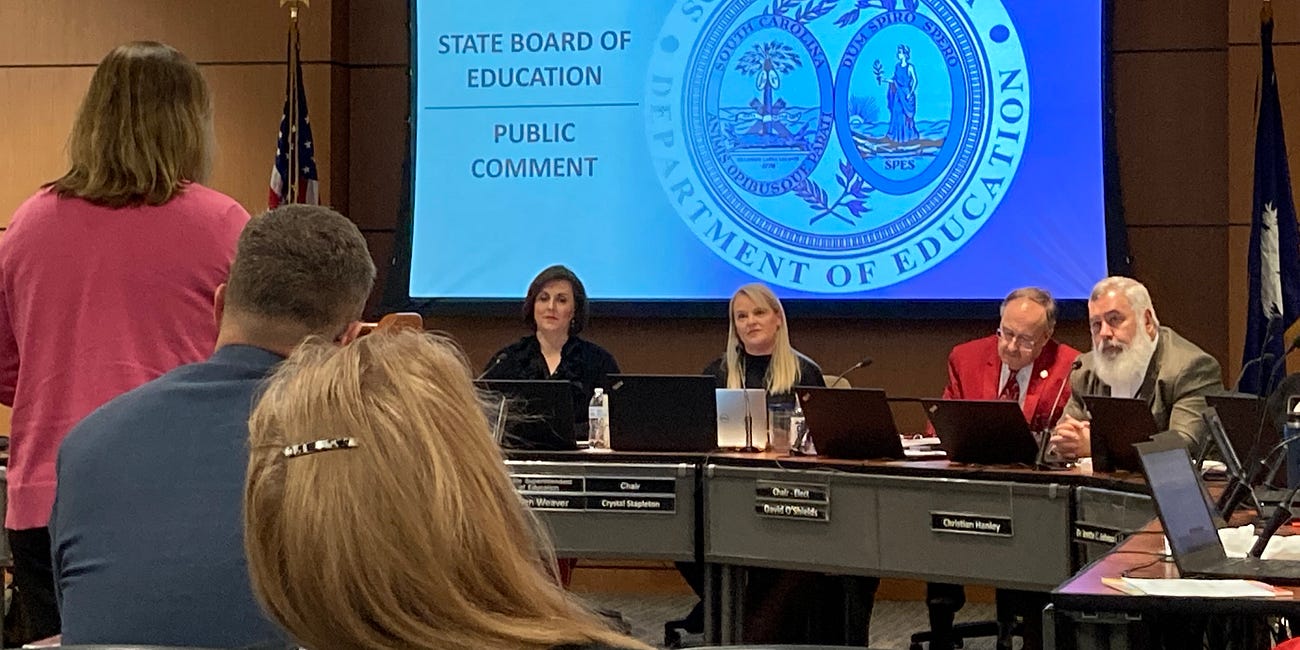First SC state-level challenges include 1984, Romeo and Juliet, To Kill a Mockingbird, YA titles
Books challenged at the state level can be removed from all schools
Independent thought is prohibited, surveillance is everywhere, and censorship is standard fare. What makes this novel so compelling is that Orwell writes from the inside that such governments are horrific states in which to live.
-Excerpt from the summary included with the state-level challenge against 1984
Eagle-eyed intellectual freedom advocates recently found a list of challenged books to be discussed, appropriately, on Halloween by the South Carolina State Board of Education. (For more information on how to participate in that hearing, click here or read on.) The seems to be available only in a newly-added link at the bottom of the State Board of Education subsection of the South Carolina Department of Education website.
The chair of the Instructional Materials Review Committee, notably, is Christian Hanley, who has been supported in the past by Moms for Liberty.
The list, along with its “staff recommendation” notes for each title, confirms many of the predictions of those who voiced concerns about State Board regulation 43-170 when it was first considered.
Re: Your Sweeping Book Ban Proposal
Today, I attended the regular meeting of the South Carolina Board of Education. This meeting, lack the one last month, was unusually well-attended. The regular board meetings are at 1:00 on a Tuesday in Columbia, and are usually not well-attended. Today, due to what seemed like a well-intentioned snafu, a staff member told prospective commenters to sign what turned out to be the wrong sheet. After some audible confusion, outgoing board chair Stapleton proposed a compromise and allowed the first six of about ten folks who had signed up to speak to share their comments. The remarks below are what I was going to say; instead, I ended up sharing with the board members via
It contains books that commonly appear on ideologically-biased book-banning sites like the Moms for Liberty-affiliated BookLooks, and applies a selective and shifting definition of “age-appropriate” that, in the absence of further explanation, sometimes seems to depend on whether the staff members approve of the books personally, or not.
And it contains the kinds of books that regulation author Miles Coleman all but promised would not be removed, often-taught “classics” like 1984, Romeo and Juliet, and To Kill a Mockingbird. While the included staff notes suggest these books are the only ones on the the list that don’t contain inappropriate “sexual content” under the regulation’s very broad definitions, it will ultimately be up to the State Board to make final considerations. And the decisions about what constitutes the “wrong” kind of “sexual content” seem to have been applied very differently to books like 1984 than to the Young Adult and popular fiction titles (the kinds of books more kids actually read) that make up the majority of the list.
Very similar to the strategy used by BookLooks, the “Supplemental Materials” provided for titles on the challenge list provided by the Board are often merely a series of out-of-context list of quotes that deal with “sexual content” or other other “age-inappropriate” material. Notably, for the three titles recommended for retention (the
“classics” on the list) no quotes are provided, despite the presence of “sexual content” (based on a plain reading of the regulation’s definitions) in some of them.
It will remain to be seen if the Board accepts this objectively different approach to dealing with the “classics”.
For example, in the case of the staff recommendation on Ellen Hopkins’ frequently-banned YA novel Crank, the quotes included by staff all appear, verbatim, in BookLooks’ longer list of quotes for the book.
The effect in both lists is to reduce a complex text to a list of its most salacious sentences. Notably, some of the “classics” on the list could be presented in the same way and might seem equally salacious, because in literature, context is everything.
Based on the document alone, it’s impossible to know how or why these particular books have been chosen. If they’re following the process outlined by the Department, individual parents may have challenged the books at the district level and then appealed whatever decisions were made there to the State Board. Alternatively, someone in the State Department of Education or on the Board may have flagged them preemptively.

On the other hand, if this process is anything like the district policies it was allegedly supposed to replace with something more “uniform and transparent,” it’s also possible that an individual official or other interested party could have taken the initiative to flag some or all of these books. (For example, in Anderson, the book Drama was evidently removed at the behest of a state legislator, with no formal review process.)
In any case, members of the public have a narrow window to provide feedback on these texts, via an online meeting, at 1PM on October 31. More information on how to email the committee (before October 28) to sign up is available here.
Happy Halloween!





